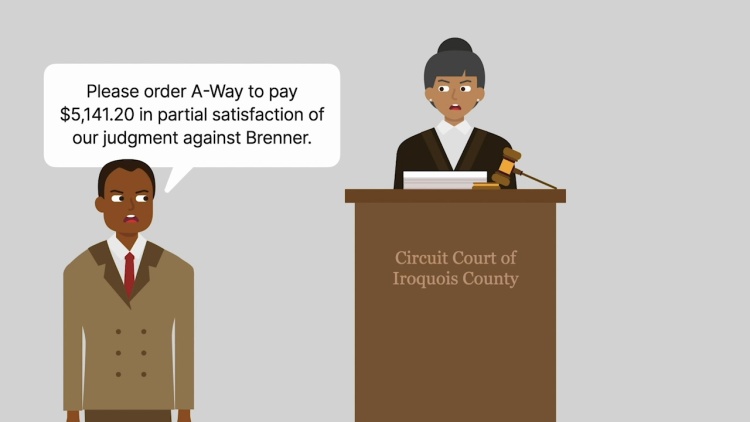State Bank of Piper City v. A-Way, Inc.
Illinois Supreme Court
504 N.E.2d 737 (1987)
- Written by DeAnna Swearingen, LLM
Facts
William C. Brenner took out a loan from State Bank of Piper City (Bank) (plaintiff) and gave the Bank a security interest in his grain. The security agreement gave the Bank “all of the rights and remedies of a secured party under the Illinois Uniform Commercial Code” (UCC). Brenner defaulted, and the Bank obtained a judgment of $131,083.91. A-Way, Inc. (A-Way) (defendant) stored Brenner’s grain. The Bank served a citation on A-Way to discover Brenner’s assets. A-Way’s ledger sheet listed 5,141.20 bushels in Brenner’s account. The bank mistakenly thought that this was the value of the grain and moved the court to require A-Way to pay $5,141.20 toward its judgment. A-Way did not appear, and the court granted the request. A-Way sold the grain for $11,310.64, sent $5,141.20 to the Bank, and applied the remainder to Brenner’s account. Months later, the Bank discovered the mistake and sued A-Way under Article 9 of the UCC to assert its security interest on the remainder of the grain’s proceeds. The complaint was dismissed on the basis of merger and res judicata. The Bank’s motion to vacate was denied, and the Bank appealed. The appellate court reversed and remanded, and the Illinois Supreme Court granted A-Way’s petition for permission to appeal.
Rule of Law
Issue
Holding and Reasoning (Ward, J.)
What to do next…
Here's why 907,000 law students have relied on our case briefs:
- Written by law professors and practitioners, not other law students. 47,100 briefs, keyed to 996 casebooks. Top-notch customer support.
- The right amount of information, includes the facts, issues, rule of law, holding and reasoning, and any concurrences and dissents.
- Access in your classes, works on your mobile and tablet. Massive library of related video lessons and high quality multiple-choice questions.
- Easy to use, uniform format for every case brief. Written in plain English, not in legalese. Our briefs summarize and simplify; they don’t just repeat the court’s language.






